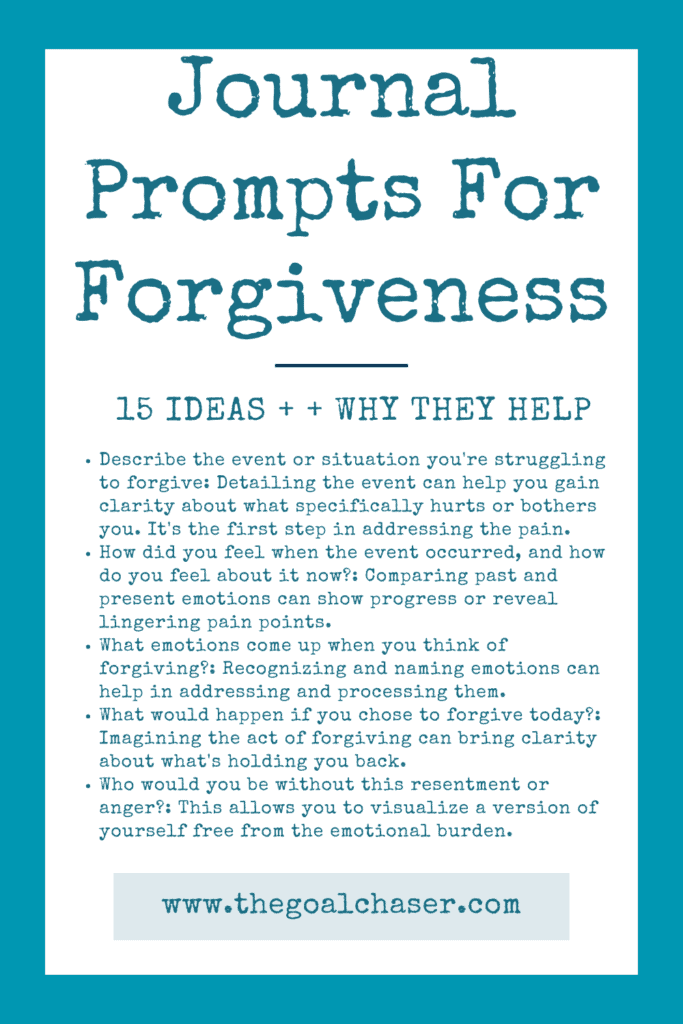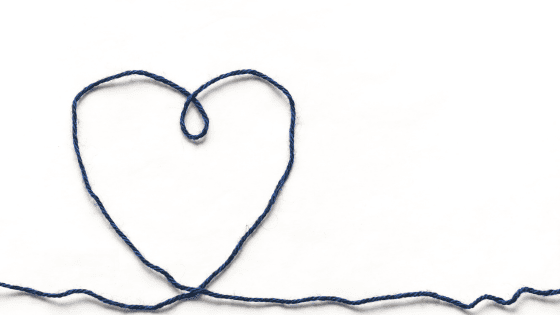15 Journal Prompts For Forgiveness (+ Why They Help)
We discuss the role that journaling can play in forgiveness, and provide some powerful journal prompt examples that may help – with a brief explanation for how each can help.
Forgiveness is a deeply personal journey, one that takes time, introspection, and often, a lot of emotional work.
Whilst some can forgive easily, for others, past wounds and resentments can be hard to let go.
This is where the therapeutic practice of journaling can make a huge difference.
Journaling offers an intimate space to reflect, analyze, and process emotions. It’s private, with no time constraints and no wrong answers.
It allows us to have an honest conversation with ourselves, confronting the pain and resentment, and fostering understanding and compassion.

Journaling Prompts For Forgiveness
When it comes to forgiveness, journaling becomes a tool to unravel our feelings, offering insights into our own barriers and ultimately guiding us towards the path of release and peace.
The following list of journal prompts are great for the process of forgiveness and understanding:
- Describe the event or situation you’re struggling to forgive. Explanation: Detailing the event can help you gain clarity about what specifically hurts or bothers you. It’s the first step in addressing the pain.
- How did you feel when the event occurred, and how do you feel about it now? Explanation: Comparing past and present emotions can show progress or reveal lingering pain points.
- What emotions come up when you think of forgiving? Explanation: Recognizing and naming emotions can help in addressing and processing them.
- What would happen if you chose to forgive today? Explanation: Imagining the act of forgiving can bring clarity about what’s holding you back.
- Who would you be without this resentment or anger? Explanation: This allows you to visualize a version of yourself free from the emotional burden.
- Write a letter to the person you want to forgive (you don’t have to send it). Explanation: Letter-writing can be therapeutic, offering a space to articulate feelings directly.
- What lessons have you learned from this experience or situation?Explanation: Every situation, no matter how painful, offers lessons. Recognizing them can bring purpose to pain.
- How has holding onto resentment affected your personal growth? Explanation: Reflecting on the impact of resentment can motivate one to move past it.
- What are the positive aspects or silver linings, if any, that came out of the situation? Explanation: Focusing on positives can reshape perspectives and facilitate the forgiveness process.
- Are there any fears associated with forgiving? Explanation: Recognizing fears can be the key to addressing the core issues of not forgiving.
- What would you say to your younger self about this situation?Explanation: Offering advice or comfort to your younger self can be a way to gain perspective.
- How would you want someone to approach forgiveness if the roles were reversed? Explanation: Empathy can be fostered by imagining the situation from the other side.
- List three steps you can take to move closer to forgiveness. Explanation: Concrete actions can guide and structure the journey to forgiving.
- What are the potential benefits of forgiving for your well-being?Explanation: Highlighting benefits can serve as motivation to work towards forgiveness.
- Describe a time you forgave someone else or were forgiven. How did it feel? Explanation: Reflecting on past experiences can provide insights and encouragement for the present situation.
Remember, forgiveness is not about condoning or forgetting but about freeing ourselves from the grip of past pains.

Through journaling, we can privately explore these depths, understanding the layers of emotions, and making way for healing and peace. You may also like:






